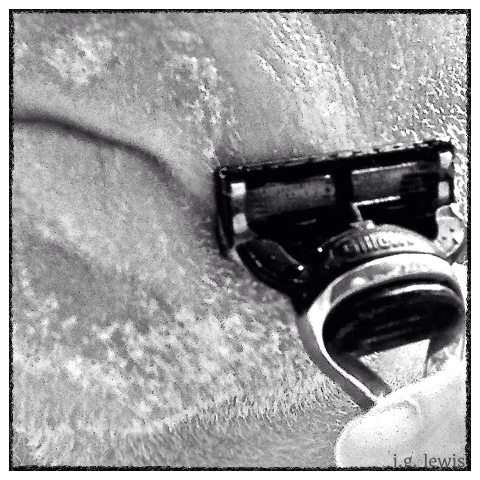Do you ever think about the things you do everyday? Those things you don’t think about, you know, you just do them. Those things.
The eating, sleeping, the way you wash your face each night, the direction and path you follow when you shave, how you tie your shoes, or which leg of the pants you put on first. The method of brewing your coffee, or how you take tea, that glass of wine at just about nine, the manner in which you butter your toast. The route you drive to work, or the fashion in which you iron your shirt; there are certain things you do because you’ve always done them that way. It becomes routine.
We are all creatures of habit. The things we do, and the way we do them, are how we function; it is our way of making it through the day. Habits are the things we, unconsciously, live our lives around. What you do every day influences how you do each day.
I have many habits (we all do); some are good, and others, perhaps, not so much. Still these habits become ingrained in the psyche. These behaviors, at one time, were learned. Now they are just lived. Some of the habits even form our personality. People know us, or know how we are, because of the things we constantly and continually do.
Whether or not we realize it, we are continually picking and choosing habits as we continue on this journey called life. People we encounter, those who grow to be more than a passing occurrence, will often cause us to rethink or adapt our patterns and protocol as we adjust. A change of workplaces, or move to a new city, the loss of a family member, or distance from others will find us recalibrating our existence. Along the way we pick up, or drop, habits. Some people are habit-forming, maybe even yourself.
Habits are formed easily — many times we don’t even realize it — and can take as few as seven days to become part of our process. The longer you do them, the more they become habitual. Studies have shown it takes an average of 66 days for a practice to firmly take hold. It’s all about conditioning, the brain transforming actions and behaviors, and the sequence of movements required, into habits. In little time we undertake the tasks without even thinking.
Still we try to think, or we try to adapt habits that may make our lives easier. We look at others and try to take on what we assume to be habits that will make our lives better. Who hasn’t read and tried to adapt The Seven Habits of Highly Effective People (or any of those popular self-help books) into their lifestyle at one time or another? Who is still trying?
We think more about adopting new habits this time of the year. We make resolutions to exercise more, eat less, or become bolder, or stronger. Early in this new year, we are all trying to foster new approaches, add new dimensions to our lives, or trying to rid, or escape from patterns or people that have not served us well. It’s a part of our evolution to try and change, always for the better. Ridding yourself of an old habit can be harder than adapting a new one, but still we try.
If, for no other reason, the adaptation of a new approach or undertaking is a way of adding excitement to, or breaking up the monotony of, our lives. Trying something different doesn’t necessarily mean trying something new. You might choose to write in your journal at a different time, or move your yoga class to another time of day. You might even try a new yoga style or studio. Perhaps you’ll rearrange the furniture and move the reading chair a little closer to the window. Maybe it’s eliminating that one thing from your diet that has been giving you grief.
Trying something different, and shaking things up a little, might just be the right habit to get into. It may only take seven days, but it might also last a lifetime. If nothing else, it is a way to break up your routine and, by now, we should all know the difference between a routine and a rut.
“The secret of change is to focus not on fighting the old, but on building the new.”
– Socrates
I’ve been writing on this website, posting something every damn day, for a year now.
It has become a habit. Thank you for taking the time to read what you can, when you can.
-j-

Leave a Reply